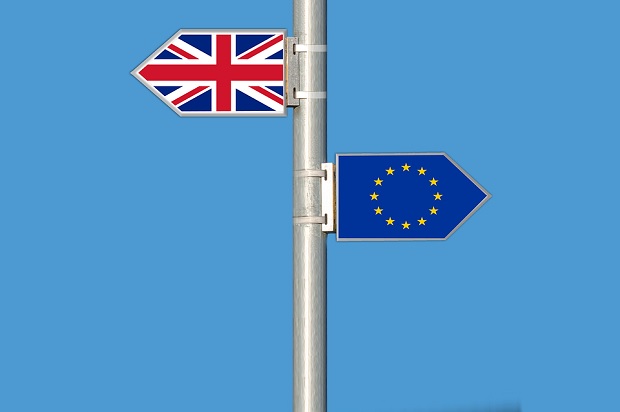As debate rages over what kind of Brexit the UK faces, consumers are increasingly polarised over the impact on the economy and society — and how that impacts the marketing industry.
The majority (58%) of UK consumers believe their family’s financial situation will worsen in 2018, according to TI Media’s annual The Briefing, Summer 2018 study, which reveals that Britain has become a nation divided by money.
Key findings:
● More than half Leave voters didn’t realise how complex leaving the EU would be
● Only 27% of UK consumers think Theresa May will deliver a good deal on Brexit
● 58% of the UK believe their family’s financial situation will worse in 2018
● 69% think the UK economy is in a poor state at the moment
‘Divided Britain’ explores how consumer attitudes are increasingly polarised by focusing on five key areas: Brexit, The Standard of Living, Plastics, the High Street and Christmas. The survey was based on research with 1,200 UK consumers.
Sean Pritchard, Customer Strategy Manager at TI Media says: “The UK is split on a number of issues, but the underlying theme is the economy. Family finances are increasingly under pressure, which is worrying a lot of people as they start planning for Christmas. Brands and retailers need to find ways to engage consumers and explain how they can get extra value out of their daily lives.”
‘Divided Britain’ – key findings:
Brexit
With Brexit dividing the breakfast table up and down the country, TI Media found that 53% of the UK are in favour of a second public vote on the Brexit deal — and slightly more (56%) are sick of hearing about Brexit in the news. One in five of those polled (20%) still don’t think the UK will actually leave the European Union in the end.
More than half of Leave voters (57%) admitted they probably didn’t realise how difficult the Brexit process would be before they voted (compared to 40% of Remainers) and only 27% of the UK are confident that Theresa May will deliver a good deal. Leave voters are overwhelmingly optimistic about Britain’s future outside the EU, while Remain voters are overwhelmingly pessimistic.
Standard of living
More than two-thirds of consumers (69%) think the UK economy is in a poor state at the moment and 58% expect their family’s financial situation to get worse as 2018 progresses. But there are major differences over just who is feeling the pressure the most. An overwhelming majority (86%) of over 65s believe they are facing years of financial hardship, compared with just 50% of 18-24 year olds.
This is reflected in what different age groups cite as the biggest threat to the UK at the moment. For younger people, it’s Brexit; for middle aged consumers, it’s terrorism; and for older people, it’s the performance of the NHS. As the UK’s population ages, concerns over public funding of the NHS, social services, policing and the national infrastructure are only likely to intensify.
Plastics and the environment
While the UK population supports efforts to cut plastic use and increase recycling, the less well off say they haven’t got the luxury of time, money or head space to worry about plastic in the way that more affluent consumers do. Just under half (48%) said that buying eco-friendly products is a luxury they can’t afford at the moment. But nearly two-thirds of consumers (63%) said they would care more about eco-friendly products if they had more time and more money.
Helping the environment undeniably gives people a sense of purpose and value — but the real issue becomes how to enable less well off consumers to act on their desire to contribute. Punitive measures like the plastic bag levy have a greater impact on the poorest in society than on the more affluent.
The High Street
UK consumers are conflicted: they love their High Streets — but they also love saving money by shopping online or by going to discounters and out of town retail parks. So while 84% of the UK says they are concerned about the High Street at the moment, 77% agree that while it’s sad, it’s just too convenient to shop online and 59% believe you get much better deals on products online.
Almost two-thirds (65%) say traditional retailers have been too slow to adapt to modern technology, while the same number (66%) think the decline of the High Street is inevitable.
Christmas
Christmas is coming — and for half of those surveyed, that means one thing: money. Only a third find Christmas relaxing. Looking at income as a factor, 57% of ABC1 consumers said their top Christmas concern was that it was ‘too expensive’, compared with 76% of C2DE consumers. But there was agreement on one thing: 35% of both ABC1 and C2DE consumers said they wanted Christmas to be ‘magical’.
Survey details
The Divided Britain report is based on three sets of research, covering a total of 1,200 consumers:
● TI Media’s State of the Nation study, 2018 – 500 UK Nat Rep consumers (July 2018)
● TI Media’s Christmas 2018 study, 2018 – 500 UK Nat Rep consumers (August 2018)
● TI Media’s UK Study, 2018 – 200 UK Nat Rep consumers (August 2018).
Source: https://www.ti-media.com/
